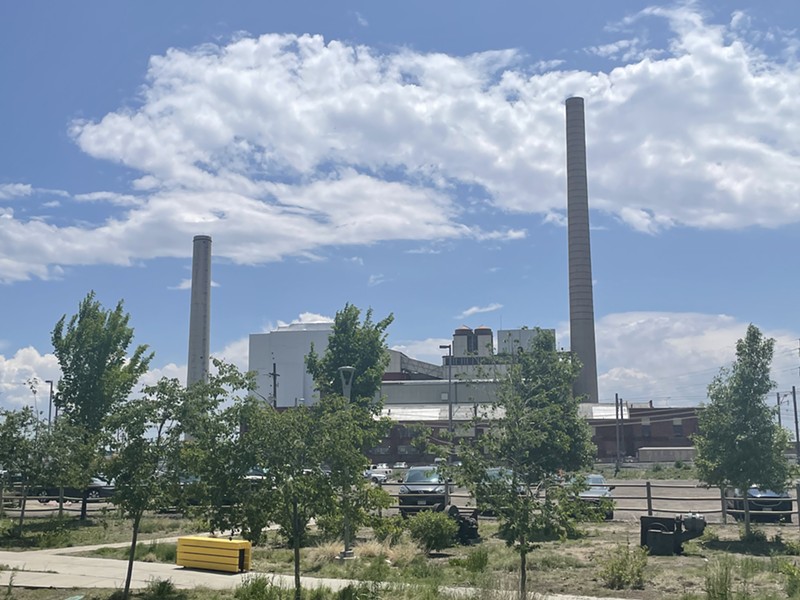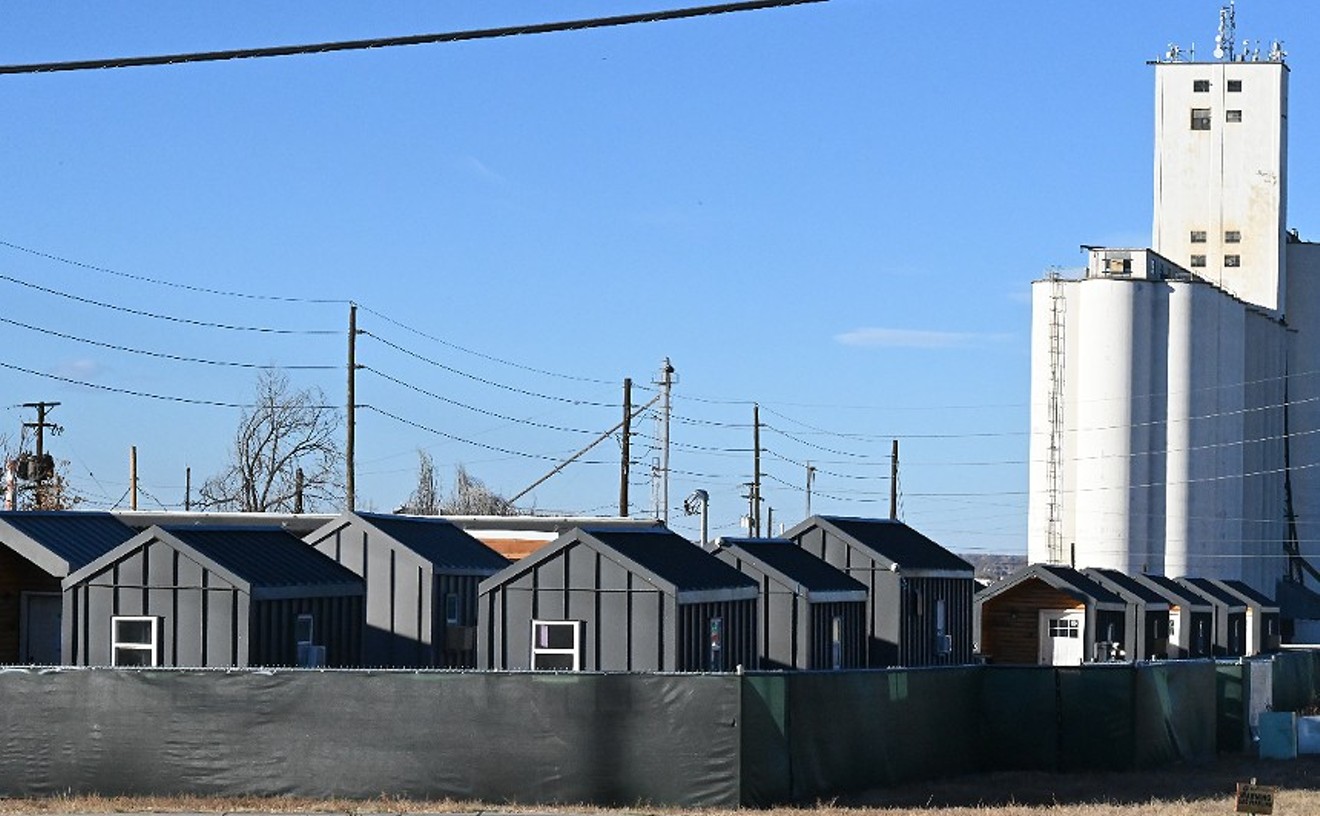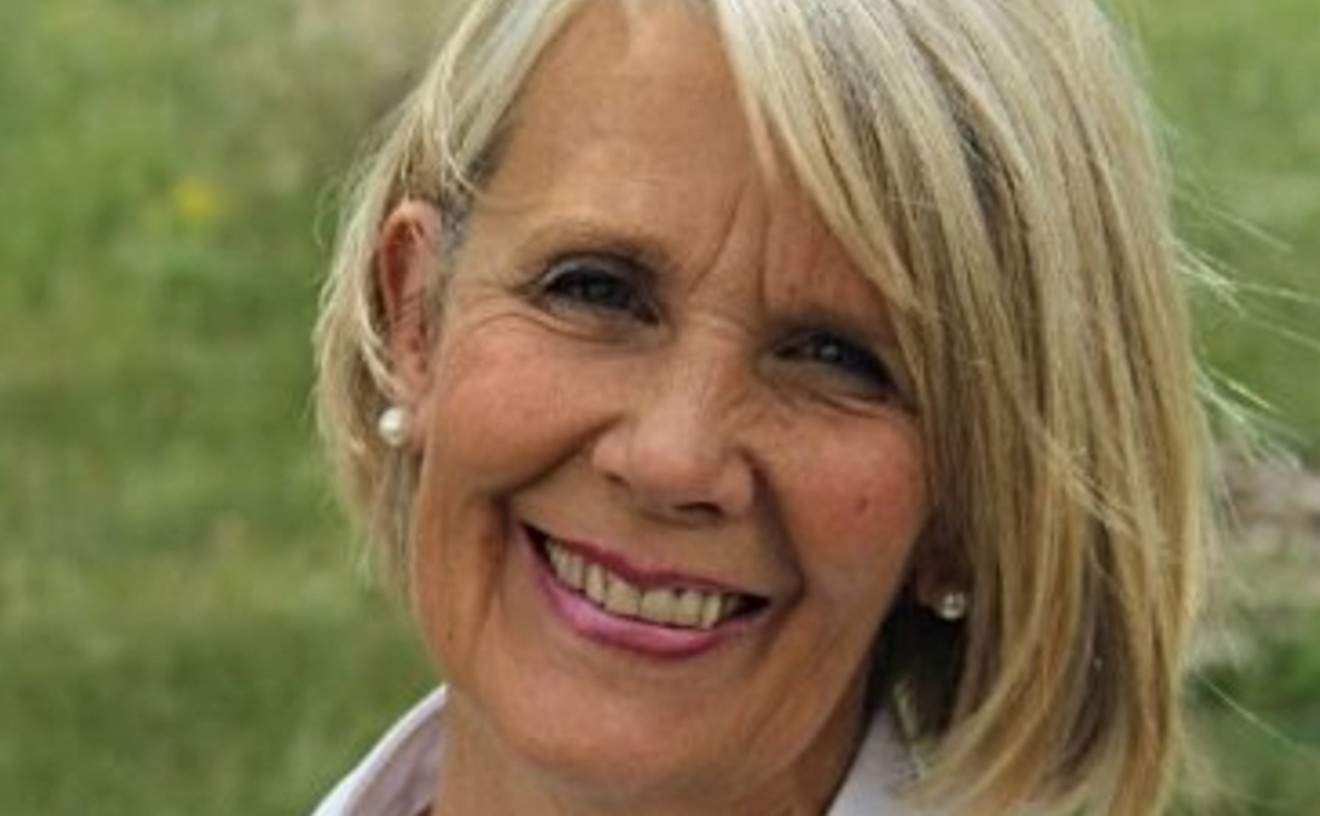Two years after Xcel Energy agreed to temporarily hold off on demolishing the Zuni Power Plant, the utility company has now given the City of Denver a chance to buy the vacant steam plant on the east bank of the South Platte River before it is put on the open market or destroyed.
“We're really in a position now where we have to move forward with the property,” says Grace Lopez Ramirez, senior area manager for community and local government affairs for Xcel.
Xcel will keep the southern portion of the property and is almost done remediating the space, according to the company. The remediation on the north parcel, which is up for purchase, was completed during the winter. According to Xcel’s franchise agreement with Denver, the city has first dibs at buying the land first.
The clock started ticking on July 26, when Andrew Holder, Xcel’s director of community relations and local government affairs, sent a letter to Mayor Mike Johnston and Denver Department of Transportation and Infrastructure director Amy Ford.
The property has not been formally appraised. Holder explained that because the land was formerly used for fuel storage and currently has transmission lines buried underground, the cost to make it usable again would be extensive. Xcel wanted to see if the city had any interest in the property before moving ahead with an appraisal.
“If the City’s position is that it might wish to purchase the Zuni property if the appraised value is low enough, [Xcel] will proceed to obtain a formal appraisal and present it to the City,” Holder’s letter says.
If Denver decides not to buy the property, Xcel wants the city to waive its first-refusal rights so the company can look for another buyer. If it can’t find a buyer, Xcel wants the city to expedite permits for the demolition of the steam plant, a route that has been opposed for years by surrounding neighborhoods Sun Valley and La Alma Lincoln Park.
In 2021, the Colorado Public Utilities Commission approved a plan to decommission the Zuni plant, which hasn’t been used since 2015. When community members found out the plan also included the building’s destruction, they rallied to secure a moratorium on its demolition, with hopes of repurposing the plant as a space with community benefit.
“This building is 123 years old in a city which is 160 years old,” says John Deffenbaugh, CEO of nonprofit Historic Denver. “It's a hugely important building for the city. It's powered Denver's growth for almost a century, and without Zuni, Denver could be a very different city than it is today.”
Though the process hasn’t always been easy, community members and Xcel now see each other as partners in determining the building’s future.
“You don't always get along well with your neighbor, or you don't always have the same goals in mind, but we've been really open and transparent about the fact that our goal is to be a better neighbor,” Lopez Ramirez says.
David Griggs, a boardmember of the La Alma Lincoln Park Neighborhood Association, sees the right of first refusal as positive. He hopes it will prompt the city to listen to residents about the property's future.
Deffenbaugh agrees: “We've all been so focused on ensuring that the building is not demolished so we actually have a building to talk about with regards to adaptive reuse,” he says. “There has not yet been meaningful conversation about adaptive reuse and what the building could become.”
Decommissioned power plants across the country, including one in Fort Collins, have been converted into spaces that serve communities and host public events. Griggs says making the Zuni plant into a destination for community services, or even an arts center, would be a great outcome.
“It could be, really, a citywide amenity,” he says. “It could certainly include a food hall, or grocery store or supermarket in an area that probably could be considered a food desert. It's got a beautiful setting on the river, and would really complement the other efforts at improving the Platte River.”
Griggs adds there is an environmental justice element, too, as La Alma Lincoln Park was designated as a historic cultural district for its Chicano culture, and Sun Valley has long been home to immigrants and refugees.
“In the past, facilities like this and facilities like jails, for instance, have been first considered for these poor, low-income communities like ours,” Griggs says. “There's really the potential to correct some of that.”
Griggs says the community expects to meet with the city and Historic Denver next week to talk about possible reuse opportunities.
According to Jordan Fuja, spokesperson for Mayor Mike Johnston, the city is still evaluating the site and hasn’t made any decisions. Denver has sixty days to respond; if it opts for an appraisal, that timeline could be extended to ninety days.
Should Denver decide not to buy the property, Zuni will hit the market for thirty days. If a buyer doesn’t emerge, Xcel will move forward with demolition, according to Holder’s letter.

Audio By Carbonatix
[
{
"name": "Air - MediumRectangle - Inline Content - Mobile Display Size",
"component": "12017618",
"insertPoint": "2",
"requiredCountToDisplay": "2",
"watchElement": ".fdn-content-body",
"astAdList": [
{
"adType": "rectangle",
"displayTargets": "mobile"
}
]
},{
"name": "Editor Picks",
"component": "17242653",
"insertPoint": "4",
"requiredCountToDisplay": "1",
"watchElement": ".fdn-content-body",
"astAdList": [
{
"adType": "rectangle",
"displayTargets": "desktop|tablet"
},{
"adType": "rectangle",
"displayTargets": "desktop|tablet|mobile"
}
]
},{
"name": "Inline Links",
"component": "18838239",
"insertPoint": "8th",
"startingPoint": 8,
"requiredCountToDisplay": "7",
"maxInsertions": 25
},{
"name": "Air - MediumRectangle - Combo - Inline Content",
"component": "17261320",
"insertPoint": "8th",
"startingPoint": 8,
"requiredCountToDisplay": "7",
"maxInsertions": 25,
"watchElement": ".fdn-content-body",
"astAdList": [
{
"adType": "rectangle",
"displayTargets": "desktop|tablet"
},{
"adType": "rectangle",
"displayTargets": "desktop|tablet|mobile"
}
]
},{
"name": "Inline Links",
"component": "18838239",
"insertPoint": "8th",
"startingPoint": 12,
"requiredCountToDisplay": "11",
"maxInsertions": 25
},{
"name": "Air - Leaderboard Tower - Combo - Inline Content",
"component": "17261321",
"insertPoint": "8th",
"startingPoint": 12,
"requiredCountToDisplay": "11",
"maxInsertions": 25,
"watchElement": ".fdn-content-body",
"astAdList": [
{
"adType": "leaderboardInlineContent",
"displayTargets": "desktop|tablet"
},{
"adType": "tower",
"displayTargets": "mobile"
}
]
}
]











